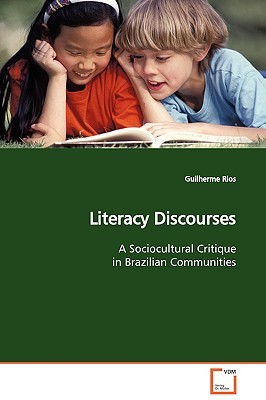
- We will send in 10–14 business days.
- Author: Guilherme Rios
- Publisher: VDM Verlag
- ISBN-10: 3639128486
- ISBN-13: 9783639128482
- Format: 15.2 x 22.9 x 1.6 cm, softcover
- Language: English
- SAVE -10% with code: EXTRA
Reviews
Description
Literacy discourses is an ethnographic study concerned with people's use and representations of literacy in two residential quarters in Distrito Federal, the federation district within which is the capital city of Brazil. It is a detailed description of situated literacies in particular domains such as home and community, and it involves knowing literacy practices at both individual and social level. Besides, it is a critical explanation of how these literacies relate to other domains such as work and school. Informal ways of learning literacy are also given attention as part of the everyday use. An integration between the New Literacy Studies and Critical Discourse Analysis is made for the study of literacy as discourse in the link between local settings and global practices. As a main proposition, these situated literacies are classified as lifeworld and systems literacies, derived from Habermas's theory. This classification is meant to show the advantage of providing ways to understand relationships between vernacular and dominant literacies, which do not figure as discrete elements but exist in hybrid practices.
EXTRA 10 % discount with code: EXTRA
The promotion ends in 17d.13:20:31
The discount code is valid when purchasing from 10 €. Discounts do not stack.
- Author: Guilherme Rios
- Publisher: VDM Verlag
- ISBN-10: 3639128486
- ISBN-13: 9783639128482
- Format: 15.2 x 22.9 x 1.6 cm, softcover
- Language: English English
Literacy discourses is an ethnographic study concerned with people's use and representations of literacy in two residential quarters in Distrito Federal, the federation district within which is the capital city of Brazil. It is a detailed description of situated literacies in particular domains such as home and community, and it involves knowing literacy practices at both individual and social level. Besides, it is a critical explanation of how these literacies relate to other domains such as work and school. Informal ways of learning literacy are also given attention as part of the everyday use. An integration between the New Literacy Studies and Critical Discourse Analysis is made for the study of literacy as discourse in the link between local settings and global practices. As a main proposition, these situated literacies are classified as lifeworld and systems literacies, derived from Habermas's theory. This classification is meant to show the advantage of providing ways to understand relationships between vernacular and dominant literacies, which do not figure as discrete elements but exist in hybrid practices.


Reviews